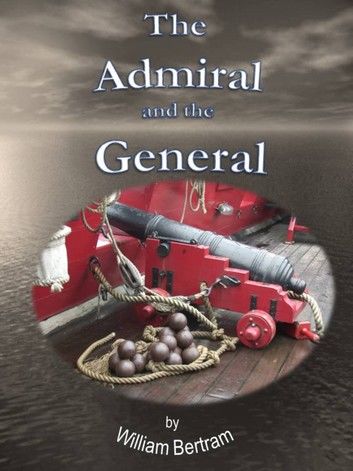圖書名稱:The Admiral and the General.
It is 1654 and the English civil war is nearly over, both Cromwell and Protestantism are now supreme in England. However, there are one of two pockets of resistance bubbling away in the background. Hence, Oliver Cromwell now looks to a foreign war to distract Englishmen from certain misery and possible rebellion at home. Deviously, he now hatches a superb plan to attack Spain on two fronts, the plan will be labelled the Western Design and this play will examine the Caribbean expedition's part of that design. On the other hand, to be more exact the two men who will carry out the plan.
One fleet will sail to the West Indies and seize or cut the flow of treasure to Spain by attacking Hispaniola. Whilst this occurs, a second fleet will sail to the Mediterranean to attack the Barbary Pirates and threaten France, whilst at the same time making friendly overtones to Spain, thus hopefully lulling them into a false sense of security. However, unfortunately, the West Indies fleet has two commanders, one for the ships, the seamen, and the other for the soldiers and any land operations. A clash of personalities will soon make this expedition sail blindly onwards towards humiliation and disaster. On the other hand, it could be argued that this expedition was the start of the formation of the Royal Marines, but of course, during the Commonwealth no one uses the title Royal.
In December 1654, the hastily put together fleet sailed for Barbados, at the end of January they arrived, where additional forces were embarked, and the fleet arrived at Hispaniola on 13 April. Most of the Store ships carrying the arms and food for the soldiers had not caught up and so a landing was attempted with about eight thousand starving and poorly armed men, many of whom were suffering from sickness. They landed some 40 miles west of the capital, and the rag tag army trudged through the woods to attack it.
It was no surprise to find that the Spanish easily threw back these dispirited and poorly armed men. Leaving General Venables complaining loudly and often about the cowardice of his men. Both commanders at that point decided to give up the attempt, and sailed for the Spanish Island of Jamaica, reaching that island on the 10 May. Fortunately, the capital town was occupied with very little fighting, and the governor forced to surrender by 17 May.
Immediately Admiral Penn and General Venables sailed home and it was approximately September when both commanders appeared before the Council of State in London. Without delay both were committed to the Tower without further ado. Even at that point, General Venables complained bitterly and placed the blame for the debacle at Hispaniola on anyone and everyone.











